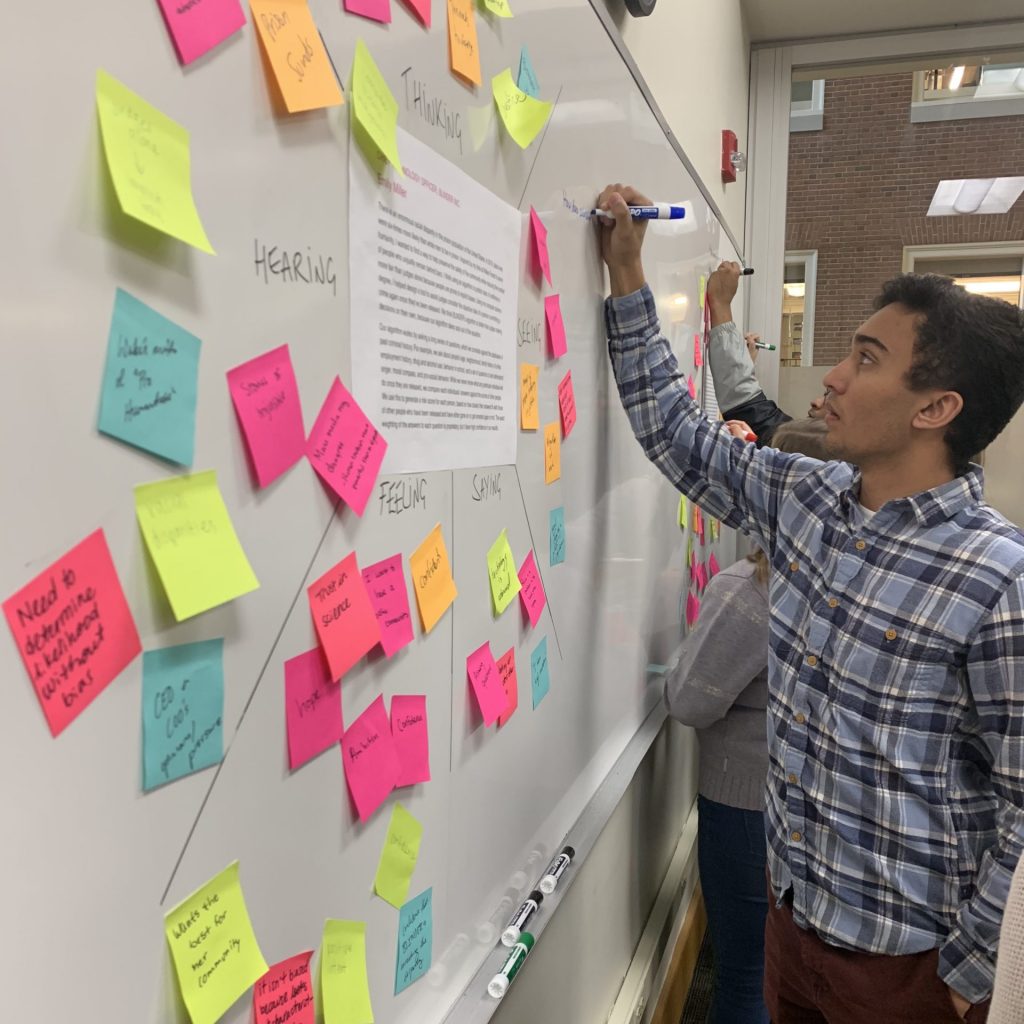The Ethics of Algorithms

How might a concern for social justice relate to our use of AI? How should the power of algorithms be balanced with human awareness of factors that data may not capture? How do empathy and humility affect our ability to make ethical decisions?
These questions animated an experimental workshop on November 18 led by Dr. Ed Brooks, Executive Director of the Oxford Character Project; Dr. Elizabeth Edenberg, Senior Ethicist at Georgetown University’s Ethics Lab; and Dr. Michael Lamb, Executive Director of the Program for Leadership and Character at Wake Forest.
The interdisciplinary team led 12 Wake Forest students through an interactive process of engaging three different perspectives in a hypothetical court case involving the ethics of algorithms in criminal sentencing. Students were challenged to infer what each person was thinking and feeling from their unique perspective and then suggest proper steps to take toward a just outcome. In the discussion that followed, students voiced the internal tensions their experienced and noted how their own biases shaped their opinions. They also identified several virtues relevant to the case, including empathy, humility, justice, courage, and practical wisdom. The purpose of the workshop was to introduce students to moral complexity and highlight the virtues that might inform different perspectives.
This pilot module was the first output of an emerging partnership between Wake Forest’s Program for Leadership and Character, Georgetown’s Ethics Lab, and the Oxford Character Project to use design-thinking and attention to character to address pressing ethical issues.
